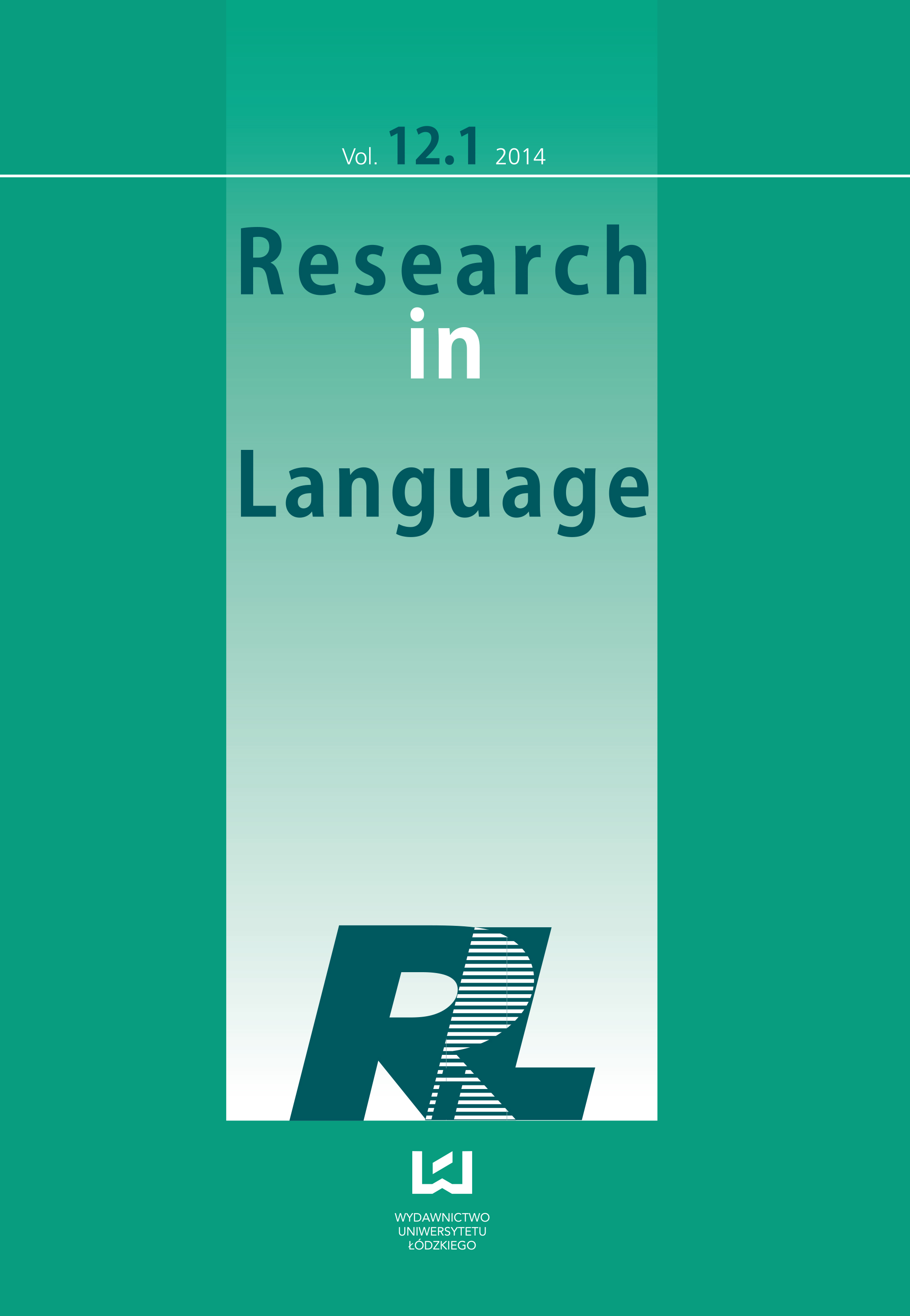Conflicting Tendencies in the Development of Scientific and Technical Language Varieties: Metaphorization vs. Standardization
DOI:
https://doi.org/10.2478/rela-2014-0009Keywords:
scientific and technical discourse, technical language, extension of meaning, metaphorization, standardization, pragmatic analysisAbstract
The present paper discusses relations between meaning and context as an interactive process that promotes cognition and communication, both intralingual and interlingual. The article also studies two evident conflicting tendencies in the development of technical language: metaphorization and standardization. Metaphorical meaning extension is characteristic of technical vocabulary in all discourse domains. At the same time, contemporary development of corpus linguistics facilitates standardization of terms. Taking into account pragmatic aspects of the text environment, i.e. referential, situational, cultural and social contexts, language users can interpret the meaning of new terms, establish relations and interconnections between terms and concepts within a text, domain and entire scientific and technical discourse. In the present article, observations on the nature and application of contemporary technical terminology are made on the basis of extensive empirical research.
References
Aixela, Franco (2004). The Study of Technical and Scientific Translation: An Examination of Its Historical Development. The Journal of Specialized Translation (29-47), 01
Google Scholar
Baker, Mona (2011). In Other Words. GB: Routledge
Google Scholar
Beaugrande de, Robert (2001). “Theory and Practice of Translation in the Age of Hypertechnology”. Paper at the Second International Congress of Translators, Universidade Federal de Minas Gerais
Google Scholar
Byrne, Jody (2010). Technical Translation: Usability Strategies for Translating Technical Documentation. Netherlands: Springer.
Google Scholar
Cabre, Teresa (1998). Terminology. Theory, methods and applications. Amsterdam/Philadelphia: John Benjamins Pub Co
Google Scholar
Carston, Robyn (2010). Metaphor: ad hoc concepts, literal meaning and mental images. In Proceedings of the Aristotelian Society 110 (3) (297-323)
Google Scholar
Doninguez, Guadalupe & Rokowski, Patricia (2002). “Implications in Transalting Economic Texts”. Translation Journal 6, n.3
Google Scholar
Gerding-Salas, Constanza. (2000) ”Teaching translation: problems and solutions” Translation Journal 4, n.3. (1-11)
Google Scholar
Hatim, Basil & Mason, Ian. (1990) Discourse and the Translator, London: Longman
Google Scholar
Lipka, Leonhard (2003). “Observational Linguistics and semiotics”. In J. Hladk (ed.), Language and Function. To the memory of Jan Firbas. Amsterdam-Philadelphia: Benjamins
Google Scholar
Malinowski, Bronislaw (1923). „The Problem of Meaning in Primitive Languages” supplement to C.K. Ogden and I.A. Richards (eds.) The Meaning of Meaning (296- 336). New York: Harcourt Brace and World
Google Scholar
Malmkjaer, Kirsten (Ed.) (2002). The Linguistics Encyclopedia. GB: Routledge
Google Scholar
Nord, Christiane (1997). Translating as a Purposeful Activity: Functionalist Approaches Explained. Manchester: St. Jerome
Google Scholar
Sager. Juan (1990). A Practical Course in Terminology Processing.Amserdam/Philadelphia: John Benjamins Pub Co
Google Scholar
Sager, Juan (1998). “Terminology: standardization” & “Terminology: theory”. In Mona Baker (Ed.) Routledge Encyclopedia of Translation Studies. GB: Routledge
Google Scholar
Shaffner, Christina & Adab, Beverly. (2001) “ The Hybrid Text in Translation”, In Across Languages and Cultures, 2 (2). Budapest, Acadmiai Kiad
Google Scholar
Stolze, Radegundis (2009). Dealing with cultural elements in technical texts for translation. The Journal of Specialized Translation, 11
Google Scholar
Temmerman, Rita & Kerremans, Koen (2003). Termontography: Ontology Building and the Sociocognitive Approach to Terminology Description". In: Hajicov, E., Koteovcov, A., Mrovsk, J. (eds.), Proceedings of CIL17, Matfyzpress, MFF UK (CD-ROM). Prague, Czech Republic
Google Scholar
Wright, Sue Ellen & Budin Gerhard (comps.) (2001). Handbook of Terminology Management: Volume 2: Application-Oriented Terminology Managemen. Amserdam/Philadelphia: John Benjamins Pub Co
Google Scholar
Online 1 http://msdn.microsoft.com/en-us/library/cc246926%28PROT.13%29.aspx [Accessed on 10 June, 2011]
Google Scholar
Online 2 http://www.lammertbies.nl/comm/info/RS-232_flow_control.html [Accessed on 5 May, 2011]
Google Scholar
Downloads
Published
How to Cite
Issue
Section
License

This work is licensed under a Creative Commons Attribution-NonCommercial-NoDerivatives 4.0 International License.










